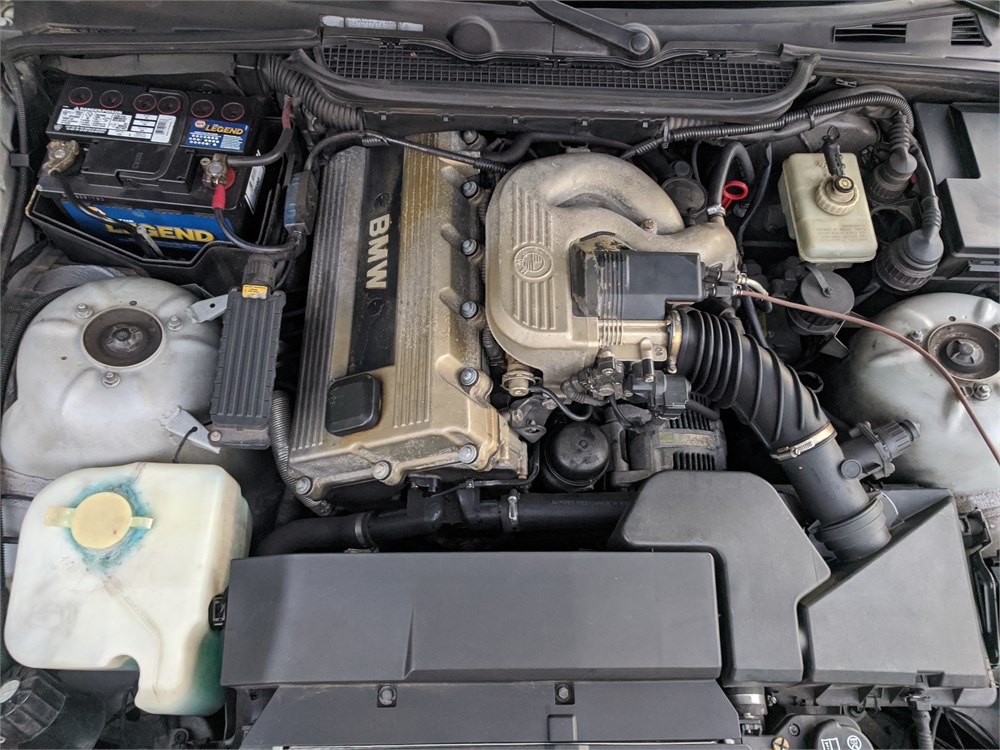The BMW 318ti: A Blend of Style, Comfort, and Efficiency
The BMW 318ti: A Blend of Style, Comfort, and Efficiency
Blog Article
Essential Factors To Consider for Selecting the most effective Engine for Your Needs
In the realm of choosing the suitable engine to meet your needs, a number of essential variables demand precise consideration to ensure optimal efficiency and effectiveness. From the nuanced balance between power and efficiency to the often-overlooked aspects of maintenance and service needs, each facet plays a crucial function in figuring out one of the most appropriate engine for your details needs. As the complexity of engine modern technologies proceeds to evolve, discerning one of the most fitting option necessitates a deep understanding of the interaction between numerous considerations. By exploring the intricate web of elements that underpin this decision-making process, a clearer path emerges towards choosing an engine that not just meets yet surpasses your expectations.
Power and Performance
When evaluating engines for optimal efficiency, it is critical to prioritize both power outcome and performance. Power result determines the capability of an engine to create power, which straight influences its efficiency. A high power outcome is necessary for requiring tasks such as high-speed requirements or durable applications. It guarantees that the engine can deal with the work properly and successfully. However, power alone is not sufficient; efficiency plays a substantial function in determining the general efficiency of an engine. Performance refers to exactly how well the engine converts fuel into useful energy. A a lot more effective engine will certainly deliver better gas mileage, lower discharges, and lowered operating expenses. Striking the best equilibrium in between power outcome and effectiveness is vital to selecting an engine that satisfies your details requirements. When making this decision, it is crucial to consider elements such as the meant use of the engine, ecological effect, and long-term cost implications. By carefully reviewing both power and efficiency, you can select an engine that provides ideal performance and meets your demands effectively.
Gas Effectiveness and Economic Climate
Fuel efficiency refers to the engine's capability to transform fuel right into power with minimal waste, directly impacting operating prices and ecological sustainability. Engines with higher fuel effectiveness not just decrease gas costs yet likewise reduce carbon exhausts, adding to a greener operation.
Compatibility and Application
Thinking about the gas performance and economy of an engine, the following important element to address is its compatibility and application within details functional contexts. Compatibility refers to how well the engine integrates with the overall system or tools it powers. It involves variables such as physical dimensions, placing alternatives, electric interfaces, and control systems. Ensuring compatibility is important to stop problems such as getting too hot, vibrations, or power imbalances (bmw 318ti).
Different engines are designed for particular functions, whether it be industrial machinery, marine vessels, autos, or power generators. Recognizing the intended application allows for the choice of an engine that can provide the required power output, torque, and functional characteristics.
Upkeep and Solution Needs
Upkeep and solution needs play a crucial function in guaranteeing the durability and optimum performance of an engine. Normal maintenance is crucial to protect against break downs, expand the lifespan of the engine, and maintain its performance. When selecting an engine, it is necessary to consider the maker's suggested upkeep timetable and the accessibility of solution centers or qualified technicians.
Factors such as the frequency of oil changes, filter replacements, and overall evaluations can considerably impact the engine's performance. Some engines may need even more regular maintenance based upon their layout and usage, while others he said may have longer intervals in between maintenance checks. It is crucial to stick to these service demands to avoid costly repairs and unanticipated downtime.

Expense and Budget Considerations
Spending plan restrictions commonly play a significant function in the decision-making process when selecting an engine for a certain application. When considering the cost and budget plan effects of choosing an engine, it is important to evaluate not just the initial acquisition price however additionally the lasting expenses connected with upkeep, gas consumption, and potential upgrades or fixings. It is important to strike an equilibrium in between the upfront expense of the engine and its total lifecycle prices to make certain that the picked engine remains monetarily sustainable throughout its operational lifespan.
Factors such as fuel reliability, effectiveness, and durability can directly affect the complete price of possession of an engine. While an extra pricey engine may have try here greater ahead of time prices, it can possibly lead to lower upkeep and fuel costs with time, thus supplying much better worth in the long run. Additionally, considering the accessibility and expense of extra components, in addition to the ease of upkeep and service, can help protect against unanticipated monetary stress in the future. By thoroughly reviewing these price and budget plan factors to consider, you can make an enlightened decision that aligns with your functional demands and financial restrictions.
Final Thought

Gas effectiveness refers to the engine's capability to transform gas into energy with minimal waste, straight impacting operating expenses and ecological sustainability.Variables affecting gas performance consist of engine style, combustion effectiveness, and total performance optimization. Furthermore, picking the appropriate fuel type and quality as advised by the engine maker can better enhance performance and lengthen engine life-span.
Engines with excellent service functions and conveniently available components can minimize maintenance expenses and decrease the time the engine is out of operation - bmw 318ti. It is crucial to strike a balance between the ahead of time cost of the engine and its total lifecycle costs to make certain that the chosen engine stays financially sustainable throughout its functional life expectancy
Report this page